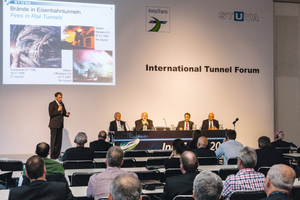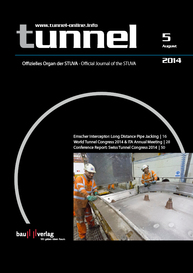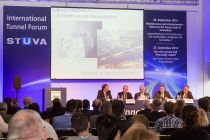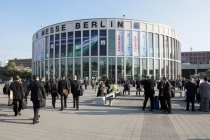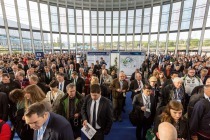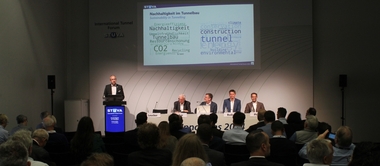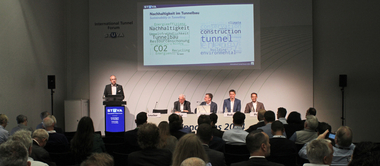International Tunnel Forum:
Focus on highly topical Subjects
Once again highly topical subjects relating to mobility and tunnelling will be dealt with by the International Tunnel Forum at the InnoTrans in Berlin this year. The STUVA – the Research Association for Underground Transportation Facilities Inc. – is once again responsible for the organization and content of this Forum. Different aspects and in all likelihood different views will be presented and discussed during the two days of the Forum. Every participant will consequently receive stimulation and recommendations for his own activities.
Maintenance
and Refurbishment
The issue dealt with on the first day relates to “Maintenance and Refurbishment – What are the future Tasks of Tunnelling?” The background to this question is provided by the fact that a large number of rail tunnels within Europe has been in use for 150 years or more. Furthermore, Metro networks in many European cities have largely been completed – with certain sections in use in excess of 100 years. The outcome is that construction activities must increasingly be directed towards the maintenance and refurbishment of tunnels rather than building new ones.
As tunnels are an integral component of an efficient transport network, they are rightly described as “critical infrastructures”. Renovations therefore often have to be undertaken while tunnels remain operational as major hitches result within the overall network, should they be unavailable. As a result, such increasing activities in the field of maintenance and basic refurbishment generally call for stepped-up organizational and logistical considerations and require further developments and technological improvements. In this connection, the range of topics can be very extensive: from repairing concrete by way of enlarging the clearance area right up to operational technology issues.
Financing new
Tunnelling Projects
The second day is devoted to the topic: “Are new Tunnels still financially viable?”, for particularly in times when money is scarce it is imperative that available monetary resources are eked out. If you follow the public discussion relating to demonstrations aimed at major projects you can easily gain the impression that building tunnels represents a pure luxury and that nowadays no one can afford this luxury. It is not generally perceived that there are justifiable reasons for building tunnels and that the cost-benefit factor can also emerge on the side of building them. In order to put forward saving potentials, the question must for instance be posed which elements are especially cost-intensive and whether there are actually alternatives. Alongside the pure production costs for the roughwork the various operational technical engineering components also exert an influence on the costs. Equipping the tunnel in particular results in high running costs on account of the substantially lower durability compared to the concrete structure. As a consequence, the Forum will examine whether topical research results afford financial savings and whether alternative opportunities for financing exist beyond standard practices.

